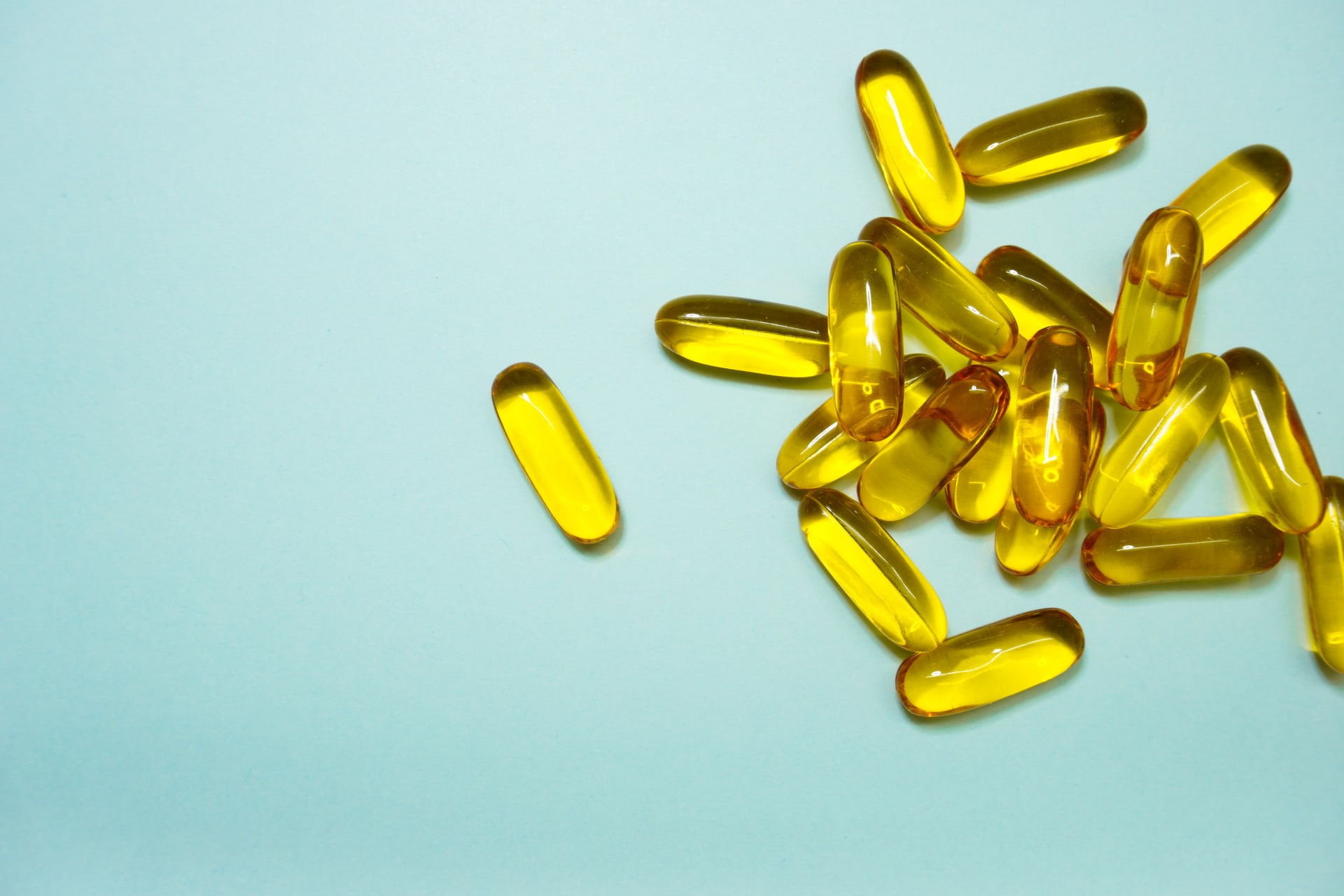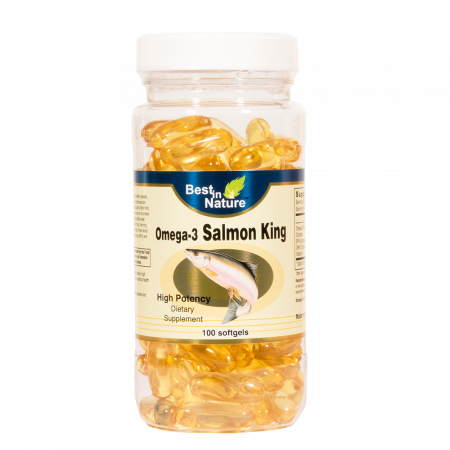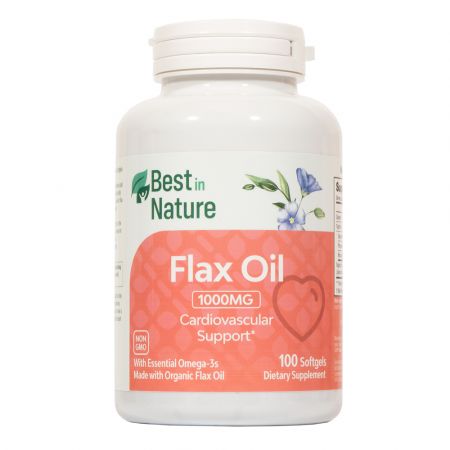
Reviewed and Updated: April 8th, 2025
What you could be writing off as some odd mood swings or less energy than usual is your body telling you something is missing. Omega-3 deficiency is a common issue among adults for several reasons, ranging from an imbalanced diet to a misunderstanding of what omega-3 fatty acids actually do.
Omega-3 supplements are a simple way to fortify your health and ensure you’re not missing out on the benefits of this powerful fatty acid. Take a look below to learn about the most common omega-3 deficiency symptoms, how to obtain Omega-3 in your daily diet, and the benefits of supplements.
What Are Omega-3s And What Do They Do?
Omega-3 fatty acids are a vital and complex component for healthy artery, immune, and blood function. Contrary to popular belief, fat is not always harmful to the body.
Fatty acids protect your cells and are found in multiple forms throughout your body. The different types of fatty acids include saturated fats, polyunsaturated fats, mono-unsaturated (healthy), and trans fats. Saturated and trans fats are some of the worst for you and as one might expect are often found in fast food and junk food. On the other hand, healthier fats like polyunsaturated and mono-unsatured fats have many health benefits and are found in foods like avocado and salmon.
What Are The Benefits Of Omega-3s On Health?
Omega-3 fatty acids are vital in maintaining optimal health due to how they’re carried throughout the bloodstream. They’re also responsible for maintaining healthy lungs, reducing your risk of stroke, and have even been found to reduce symptoms of depression.
Additional benefits include:
- Lowering cholesterol
- Fighting depression
- Possibly helping lower blood pressure
- Improving eye health
- Improving overall heart health
- Diabetes
- Rheumatoid arthritis
- Systemic lupus erythematosus (SLE)
- Osteoporosis
- Reducing symptoms of bipolar disorder
- Reducing symptoms of schizophrenia
- Lowering rates of attention-deficit/hyperactivity disorder (ADHD)
- Slowing cognitive decline
“Studies show that patients with heart failure who take fish oil supplements experienced a reduction of related hospitalizations (and subsequent deaths). Another study showed that supplementation with fish oils improved heart health and function.”
[Related: 10 Heart-Healthy Snacks For A Better Life]
Who’s At Risk For An Omega-3 Deficiency?
Omega-deficiency is a serious issue that should be corrected as swiftly as possible. Due to the widespread influence of fatty acids on the body, omega-deficiency can impact your life in a number of negative ways. A lack of omega-3 can result in several issues such as heart issues, inflammation conditions, cognitive decline, vision problems, and pregnancy complications.d
Vegans have a higher risk than average for omega-deficiency, due to the lack of fish in their diet. Omega-3, however, can still be found in nuts, seeds, and certain vegetables. People on strict diets that deprioritize fat are also at a high risk. Remember: not all fats are unhealthy. It depends on the kind of fat you consume and how much.
Omega-3 Deficiency Symptoms
The warning signs of omega-3 deficiency can easily be written off as other problems. However, it’s essential to listen closely to your body and be proactive with minor problems so they don’t get worse. When you notice these symptoms stacking up, consider investing in an omega-3 supplement.
Common signs you need more omega-3 in your diet include:
- Joint pain and stiffness - Omega-3 has anti-inflammatory properties and thus naturally relieves swelling and inflammation especially in the joints. Joint pain and even cramps can be a symptom of an Omega-3 deficiency.
- Dry skin - Omega-3 builds up cell walls so without enough, you’ll notice diminishing quality in your skin, hair and nails. One can experience dry skin, brittle hair and nails that peel and break easily.
- Dry eyes - Omega-3 fatty acids play a role in eye moisture and perhaps even tear production. Without enough of this nutrient, one can experience dry eye or even disturbances in vision.
- Depression - Omega-3 is known to help protect the brain. An omega-3 deficiency is linked to worsening many brain conditions. Chief among them is depression. Various mechanisms of action have been suggested, such as, passing the brain cell membranes and interacting with mood-related molecules in the brain; as well as anti-inflammatory properties that can alleviate depression. A cross-sectional analysis of 26 studies found taking Omega-3 had some benefit on depression.
- Hair changes - Hair loss, decrease in hair density and changes to hair texture are normally considered signs of aging or stress. For some people, an Omega-3 deficiency could be causing their hair problems. At least one study performed on women found increased hair quality against a control group when supplementing for Omega-3.
How Do I Get Enough Omega-3?

It’s important to remember that the human body does not produce omega-3 fatty acids by itself. This compound is obtained through food, and more specifically, a balanced diet.
Supplements are a prime way to fill in dietary gaps. They should be taken daily alongside a well-rounded diet, though the amount depends on your age, health problems, and what kind of medication you’re taking at the time.
Available Forms Of Omega-3 (ALA, EPA, And DHA)
Omega-3 fatty acids appear in three forms: ALA, EPA, and DHA. How much you get depends on the kind of foods you eat on a daily basis.
Fish are the reigning champions of EPA and DHA. ALA, on the other hand, is found in plants.
Plant-Based Sources Of Omega-3 Include:

It’s well-known that fish is a great source of omega-3 fatty acids. What if you’re a vegetarian or a vegan?
Fortunately, you can find small amounts of omega-3 fatty acid in nuts and seeds. Pumpkin seeds, both with and without the shell, are a prime source and make a popular snack. Opt for the unsalted versions to reap the maximum heart-healthy benefits.
Additionally, ALA can be found in cooking oils such as canola and soybean oil, as well as in medicinal oils like flaxseed oil and dietary supplements containing flaxseed oil. It can also be found in chia seeds, algal oil (derived from algae), hemp seeds, walnuts, and perilla seeds.
Animal-Based Sources Of Omega-3 Include:

Meat and eggs have the highest concentration of omega-3 fatty acids. Fish are widely celebrated for their relatively low content of fat and high concentration of healthy vitamins and minerals.
Salmon is the go-to fish for omega-3 fatty acids, though you can do well with mackerel and trout. They have an impressive 4,000 mg per serving and are ranked highly on heart-healthy food lists. If you can, seek out wild-caught salmon, farm-raised salmon, especially with poor diets, were found to be higher in Omega-6 and less rich in Omega-3 fatty acids.
“Better farming operations are conducted more sustainably, allow the salmon more room, and feed them better diets, while the opposite is true for less-reputable farming operations. Additionally, be aware that farmed salmon may have a little more Omega-6 and less Omega-3.”
What To Know When Taking An Omega-3 Supplement:
It’s important to remember that fatty acids, just like vitamins and minerals, can be very harmful when taken in excess.
If you’re concerned about a deficiency, meet with your regular doctor and request a blood test to see what your body needs. Discuss the medications you’re taking, including birth control. You’ll also want to specify your lifestyle. If you’re a very sedentary person, for example, you could be at a higher risk for high blood pressure, cardiovascular disease, and diabetes.
[Related: Top 9 Vitamins And Supplements For Heart Health (Plus 2 Bonus Items)]
How To Take Omega-3
You can take omega-3 fatty acids with a prescription or through over-the-counter supplements. Also known as fish oil tablets, these contain concentrated amounts of DHA and EPA.
“Like Omega-3s, fish oil supplements should be taken with a meal whenever possible as taking them with a meal will increase their efficacy.”
How Much Omega-3 Should I Take?
For adults, official guidelines recommend 250–500 mg combined EPA and DHA each day. The RDI for alpha-linolenic acid is 1.1 - 1.6 grams for men and women respectively. Those with certain health conditions can consider taking more with guidance from their doctor. While many supplements are rich in Omega-3, for certain medical conditions, doctors order prescription Omega-3.
Do not take more than 3 grams, as that can risk blood thinning and vitamin A toxicity. Notable signs of toxicity can be coordination problems, skin irritation, severe headache, liver damage and liver failure. Thus, it is important to pay attention that the content of vitamin A in fish oil supplements does not exceed 700-900 micrograms (mcg).
Medications Omega-3 May Have Harmful Interactions With
You shouldn’t take omega-3 supplements or prescriptions if you have a blood disorder, particularly if you’re taking blood thinners.
High levels of cholesterol also interact poorly with fatty acid supplements. A body already struggling with too much fat can risk clots with more omega 3 and, subsequently, increase the possibilities of a stroke.
Bottom Line
There are several warning signs that you could have an Omega-3 deficiency. Luckily, there are many sources from which you get an adequate amount including fish, plant sources, and supplements like fish oil capsules. The symptoms of an Omega-3 deficiency could also be tied to other conditions so if you’re concerned, talk to your physician to find out more about the underlying causes.
Looking to supplement your Omega-3? Best in Nature’s Omega-3 Salmon King provides 600 mg of EPA and 400 mg of DHA in every serving!
This article is provided for informational purposes only and is not intended to be used as medical advice. If you have immediate concerns about your health, please seek the help of a medical professional.
© 2021 Best in Nature All rights reserved








Validate your login
Sign In
Create New Account